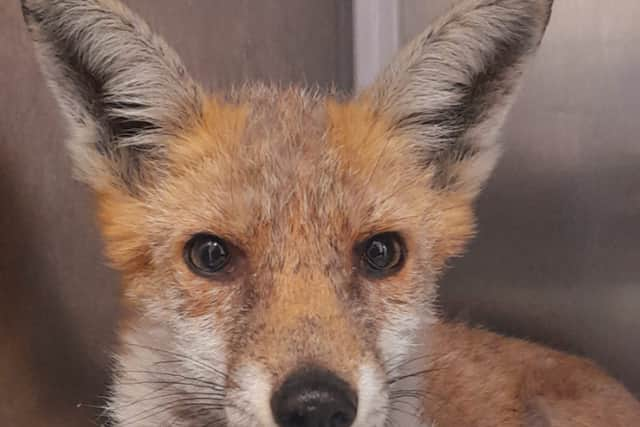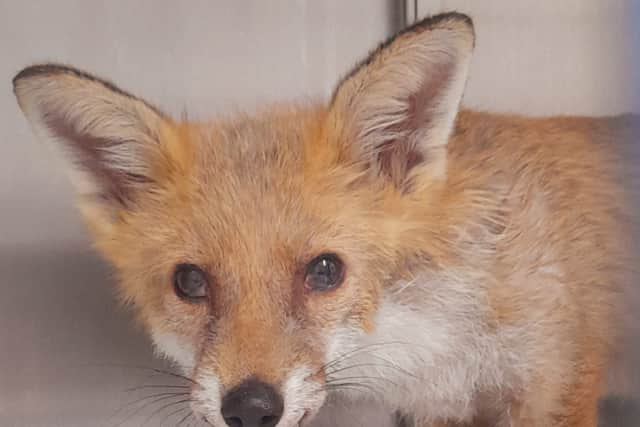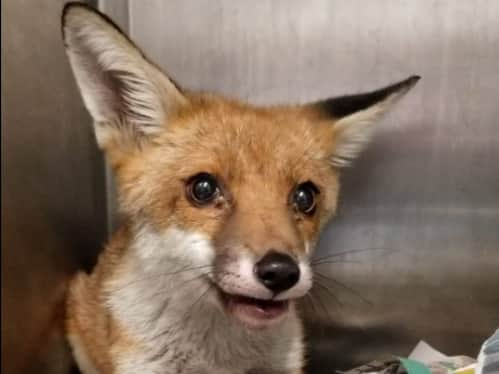How to help struggling foxes and cubs during a tough autumn period
and live on Freeview channel 276
Although rural foxes are often found in woodland areas and are usually shy creatures, urban foxes love to visit domestic gardens and are quite confident.
Advertisement
Hide AdAdvertisement
Hide AdAutumn time is known as the dispersal period, with fox cubs born earlier in the year going off to find their own territory and eventualy start their own family.


Unfortunately, this new found independence can pose a threat to cubs, with many becoming unwell.
LiverpoolWorld spoke to Wirral Fox Rescue about the dispersal period and the work they do to look after foxes.
What are the threats to foxes during Autumn?
Gray Taylor, Fox Unit Manager, told LiverpoolWorld: “Some of those dispersing will be suffering with mange and they may well appear in your yard or garden, exploring that unfamiliar territory.


Advertisement
Hide AdAdvertisement
Hide Ad“Mange is a parasitic mite which if left to progress will slowly debilitate the fox, this is entirely preventable with treatment and that is where we come in.
“There has been too much suffering with mange in the fox community that has been allowed to go largely unchallenged in Wirral and we are changing that now.”
How do Wirral Fox Rescue help?
Gray explains: “At Wirral Fox Rescue, we operate a 24 hour fox rescue and rehabilitation unit service for sick and injured foxes in Wirral and the surrounding areas.
“We use tools such as wildlife cameras and traps to catch foxes who are struggling to survive due to illness and injury.
Advertisement
Hide AdAdvertisement
Hide Ad”We have a 24 hour ambulance service so we can act quickly for those serious cases where the foxes life may be in immediate danger, such as road traffic casualties.”


Statistically, 1 in 3 cubs will make it to adulthood and those that do make it to adulthood live for around 18 months on average as aside from mange, the high mortality rate for foxes is a direct result of human activity.
Gray added: “We’ve treated hundreds of foxes since we started, either as patients in our fox rehabilitation unit or out in the wild, all of whom are now back out mange free living their best lives but there are many more going unnoticed who need our help before this year’s cold weather sets in.”
How can I help?
Signs of unwell foxes can present as bald patches, fur loss, scratching, weight loss and changes in behaviour.
Advertisement
Hide AdAdvertisement
Hide AdIt is important not to touch the fox as even when unwell, they can give a nasty bite.
Gray said: “The single best thing anyone can do to help is just to take notice of these beautiful animals and contact us at Wirral Fox Rescue if you see any signs of illness, infection or injury, however minor the symptoms may be.
“We rely on donations from the public so we can continue to provide foxes with healthcare, treatment, food and bedding during their time in rehab with us and outside in the wild.”
Wirral Fox Rescue are reachable on Facebook and Instagram and always on hand to answer any questions or concerns.
You can call or message their emergency number on 07900615972.
Pawprints Wildlife rescue also have a phoneline, open from 9:00-22:00 and can be reached on 0151-317-8880.
Comment Guidelines
National World encourages reader discussion on our stories. User feedback, insights and back-and-forth exchanges add a rich layer of context to reporting. Please review our Community Guidelines before commenting.
